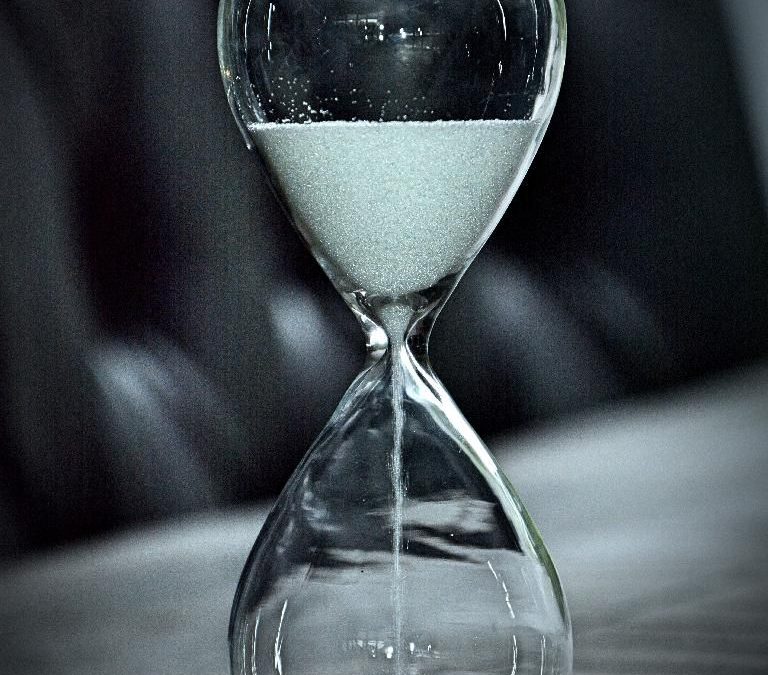Time Toxicity raises thoughts …
 Some may have read the excellent ediorial written by Moderator Ben Nathanson in a recent High Risk/Recurrent/Advanced Prostate Cancer Reminder. Ben explains ‘time toxicity’ … a concept that effects many living with serious disease. If you missed his musings, here they are again:
Some may have read the excellent ediorial written by Moderator Ben Nathanson in a recent High Risk/Recurrent/Advanced Prostate Cancer Reminder. Ben explains ‘time toxicity’ … a concept that effects many living with serious disease. If you missed his musings, here they are again:
Treatment that gives us time to live demands time in return. It drags with it scans, blood work, drives to the hospital, doctors running late, computers down, battles with insurance. Part of our gained lifetime is lost in dead time.
Toxicity is always in the cancer mix. Financial toxicity has become part of the conversation alongside physiological toxicity, and time toxicity — time lost in an effort to gain time — is joining it.
In a thoughtful 2018 essay, physician Karen Daily notes “Much of our patients’ time investments remain invisible to clinicians.” This year, in ASCO’s lead journal, three physicians have taken up the challenge, proposing that clinical trials, when reporting overall survival, distinguish between “Days with Physical Health Care System Contact” and days the patients actually own — “Home Days.” This a new idea only in cancer, say the authors — cardiology and other fields already make these kinds of measurements.
When medicine’s best offer is a handful of months, we face difficult choices. Time toxicity casts a shadow over both survival time and quality of life. As we try to balance days added against side effects, it would be good to know how much of the time we’re gaining will be ours to spend.
Reading Ben’s thoughts prompted one of our regular participants to write a reply to us both that touched me to the core. I asked if we could reprint that too, and was graciously given permission on condition of anonymity. Here it is!
Ben, thanks for the article on “time toxicity” in the (recent) meeting announcement. It identifies an important consideration for all to think about in the fight vs. cancer and from my personal experience an impact that changes over time. Your write-up got me to thinking and pushed me to a holistic realization that this is basically an investment decision with expected returns.
For the prostate component of my cancer fight (now 17 years and counting), I did not think about the time investment in the first 14 years that I (and family members) were making to “do battle” (eg lab work, appointments with doctors, scans, treatments, family meetings, insurance challenges and personal downtime / reduced effectiveness in work due to treatment, etc.), It was a “no-brainer” decision and I never considered the tradeoff as the benefits for the opportunity to “continue to live life” due to treatments as my “life” returns were overwhelmingly positive vs.the “investment” required to do battle.
Having retired three years ago and simultaneously entering a new phase of my cancer fight I am aware of the increased time I (and family members) now spend on cancer treatment yet obtaining reduced time for life (and quality of life). I’m now spending significantly more time at Doctors appointments, treatments and longer periods of time post treatment feeling the physical effects of treatment and have begun to recognize I’m going to hit a point where this equation gets out of balance….and I’m not equipped with a decision model to manage that occurrence. Given my personal nature is to grind on stuff (I can make it work, give me time and let me try!) — I’m likely to blow right past the point of equilibrium where time toxicity and balance of life toxicity begin to get out of hand. For much of the first 14 years of my cancer fight I practiced a very large (and for me, healthy) dose of self-denial that I was dealing with prostate cancer. I was able to keep the cancer part of my life cordoned off, did not have significant residual time spent thinking / worrying / etc. about the disease and lived life to the max both personally and professionally. Now, in the last three years I am finding growing quantities of “thinking time” consumed by the disease and also sucking family members…. wife and children….deeper into the cancer battle as discussions / time encroach on them as well increasing the cost of investment (time) in the battle vs. cancer.
Prostate cancer is my second cancer fight, Ten years prior to the prostate cancer diagnosis I was diagnosed with a rare leukemia (rare as it was diagnosed in a limited number of folks (~2,000 / per year in the United States) and was usually fatal shortly after diagnosis as there were no lasting treatments until about 4 years prior to my diagnosis. As a freak outcome of scientific research a drug treatment was developed; the drug was intended for another cancer that had a much larger annual incidence of new cases; the drug was not effective on the targeted cancer but it was very effective on the rare leukemia. And at the time the treatment protocol was 7 days of continuous drip via a small pump one wore around the waist as an outpatient; minimal side effects; and if the first treatment didn’t work a second round was almost guaranteed to work. Talk about lucky! There was no way research funds would have been spent on this cure except by accident — which was exactly the case. The time toxicity for me in my first cancer battle was non-existent and I believe has indirectly helped me in the prostate cancer fight by giving me a dose of optimism and coping skills.
I think the topics raised by both of you….including Rick’s statement on treatment longevity results are important for the group to consider. These are relevant points of management in the cancer battle that I haven’t seen addressed by my oncologists (except one) nor psychologists and psychiatrists that I’ve also used in my treatment.
Editor’s Comment: In the original Reminder, I responded to Ben’s comments by adding one of my own. I pointed out that frequently Overall Survival benefits were shorter than might be expected because trials are often run on patients at a very late stage of their disease. This caveat should be considerd when we see the FDA reporting short life extension, sometimes as few as 2 or 3 months, for newly approved drugs.(rd)
 Some may have read the excellent ediorial written by Moderator Ben Nathanson in a recent High Risk/Recurrent/Advanced Prostate Cancer Reminder. Ben explains ‘time toxicity’ … a concept that effects many living with serious disease. If you missed his musings, here they are again:
Some may have read the excellent ediorial written by Moderator Ben Nathanson in a recent High Risk/Recurrent/Advanced Prostate Cancer Reminder. Ben explains ‘time toxicity’ … a concept that effects many living with serious disease. If you missed his musings, here they are again:
